
The sexual health conditions men should learn about
There are certain things that can affect your sexual health, including STDs and your libido, but there’s also so much more than that. Sexual health includes having a healthier body, a satisfying sex life, positive relationships, and peace of mind, according to the National Coalition for Sexual Health. There are a wide variety of health conditions and situations that can have a negative impact on your sexual health, no matter your age. Knowledge is power, so it’s especially important to know and understand more about the following conditions, which aren’t necessarily on the radar of younger men.
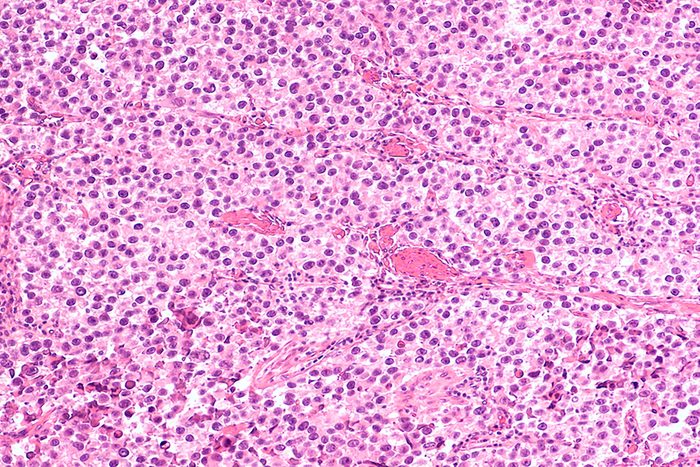
Testicular cancer
Men are sometimes known for delaying doctor visits, which is not a good habit considering the average age of a testicular cancer diagnosis is 33, according to the American Cancer Society. (Here are the signs of cancer men are likely to ignore.) About 7 percent of cases of this type of cancer occurs in children and teens. While relatively rare (about 1 in 250 men will develop testicular cancer at some point in their lives), rates of testicular cancer are on the rise in the U.S. “Men should have annual check-ups and their testes should be looked at during this exam,” says Jennifer Hirshfeld-Cytron, MD, a fertility specialist at Fertility Centers of Illinois. “If something is enlarged or doesn’t feel right, make an appointment with your doctor, as this cancer can, and does, strike men in their 20s and 30s.” The good news is that testicular cancer is highly treatable and even curable when caught early. The bad news is that testicular cancer can affect men’s sexual health, and the removal of one testicle plus other treatments for the cancer can decrease fertility, she says. “You can bank sperm before treatment to preserve your chances of becoming a dad one day.”
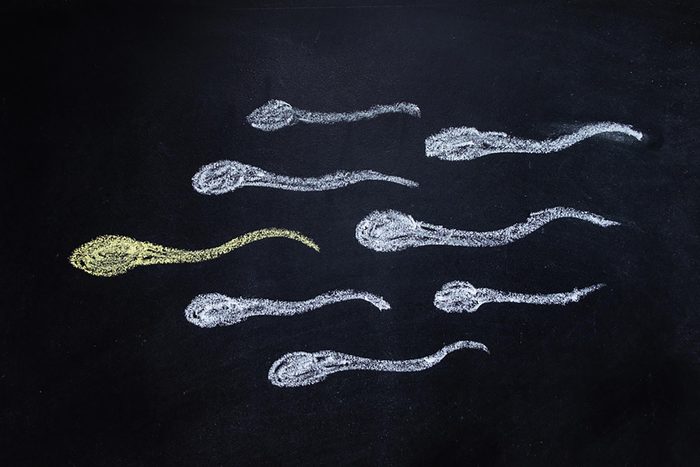
Infertility
Fatherhood may not be too high on a young man’s priority list. Even so, there are many things that young men may indulge in today that will affect their ability to have children tomorrow. “Smoking marijuana is quite detrimental to sperm, and taking steroids to bulk up can also halt sperm production,” says Dr. Hirshfeld-Cytron. All of these things are reversible because sperm regenerates every three months, she says, but men may not be aware of how any of these behaviors affect their health unless they talk to a health care professional. (There are other surprising factors that reduce male fertility too.)

Depression
Depression looks and acts differently in men than in women. Men may be more likely to be tired, irritable, and angry when depressed. Depression along with other mental health conditions can run in families, but many men are reticent to discuss these issues for fear of being judged or stigmatized. “A lot of men come in with low libido and when we screen them, we find components of depression or marital problems,” says Jamin Brahmbhatt, MD, a urologist at Orlando Health and co-Director of The PUR Clinic (Personalized Urology & Robotics) at South Lake Hospital, in partnership with Orlando Health in Clermont, Florida. Having a candid conversation with relatives and your doctor about mental health is the first step to overcoming depression and taking your life—and your sex life—back.
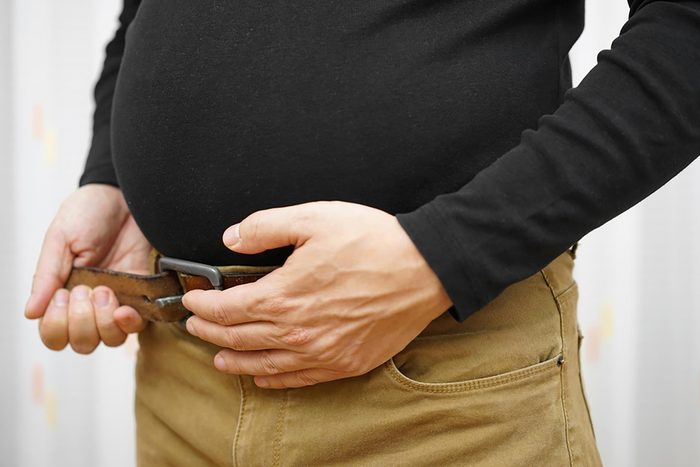
Obesity
Men who are overweight or obese run a higher risk of heart disease and certain types of cancer. But excess weight can also impair fertility and sex drive. Fat cells make estrogen, the female sex hormone, Dr. Hirshfeld-Cytron says. “This feeds back negatively to sperm which affects fertility.” It can also cause low sex drive. Your doctor will check your height, weight, and BMI at every exam and let you know where you stand—and what, if anything, you need to do more or less of to maintain a healthy weight and sex life. Eating a healthy diet can make a difference. “We want men to make these lifestyle changes today so that they can lead a more sexually active life when they are older,” adds Dr. Brahmbhatt.
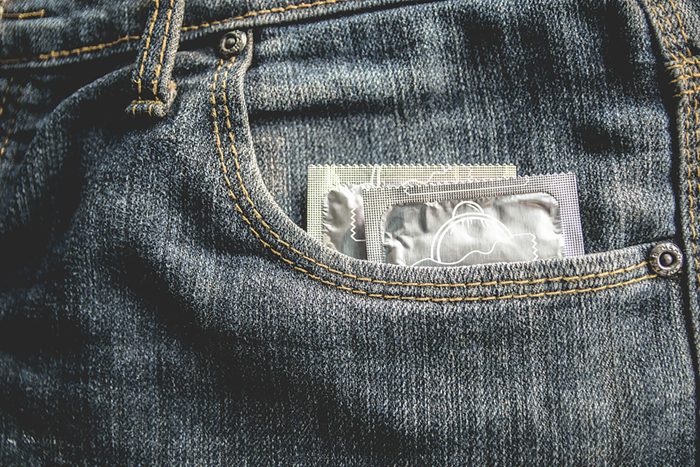
Sexually transmitted diseases
Every year, there are an estimated 20 million new STD infections diagnosed in the United States, according to the Centers for Disease Control and Prevention (CDC). And syphilis, a STD that was once almost nonexistent in the U.S., is on the rise again and can have devastating consequences if not caught and treated early. “It’s never too early or too late to start talking about your sexual health,” says Dr. Brahmbhatt. When it comes to STDs, all adults and adolescents aged 13 to 64 should be tested at least once for HIV, the virus that causes AIDs. Other STD testing is based on lifestyle and medical history. “The whole idea is to start a discussion so that men are aware of STDs and their risk factors and encourage them to use protection because prevention is easier than treatment.” Correct use of a condom every time you have sex can help you avoid STDs, he says.
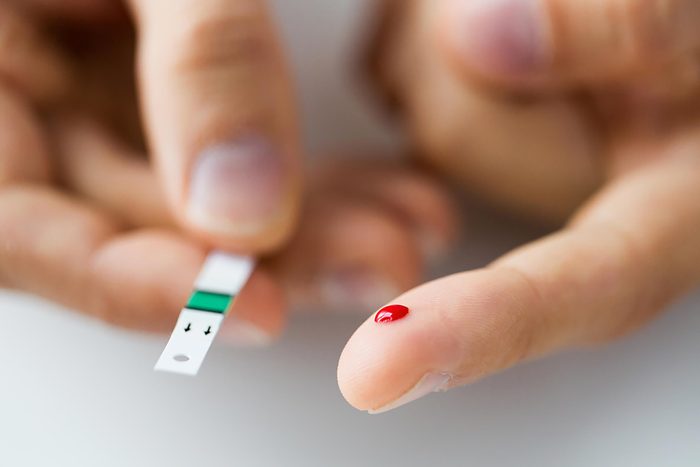
Type 2 diabetes
Men who have type 2 diabetes are known to be at higher risk for erectile dysfunction (ED). Diabetes can cause nerve damage which affects the penis, and it may also damages blood vessels, especially the smallest blood vessels in the penis. Catching any blood sugar abnormalities early can reduce the risk of developing type 2 diabetes and its downstream consequences such as ED, says Sijo Parekattil, MD, a urologist and co-director of the PUR clinic at South Lake Hospital, Clermont, Florida. “We want guys to get in the door so we can get them on the path toward good health and catch any risk factors for disease early,” says Dr. Parekattil, who conducted the Orlando Health survey with Dr. Brahmbhatt.
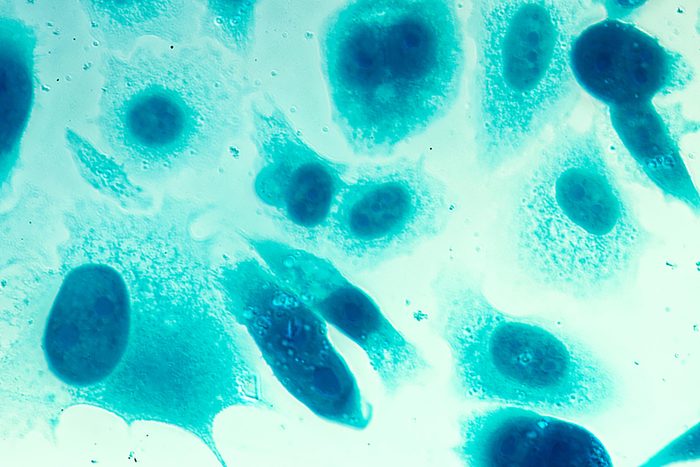
Prostate cancer
Prostate cancer seems to run in some families, Dr. Brahmbhatt says. Talking to family members about their health and medical history can help determine your risk and develop an early detection and prevention strategy. “Even though you are under 35, if your dad has prostate cancer, you should get screened earlier than men without a family history.” This can save your sex life too. “If you catch prostate cancer early, there are nerve-sparing surgical approaches that can be done which help retain sexual function, but if you wait too long than the likelihood of sexual side effects are higher.” Next, read about how having sex may slow down aging.
